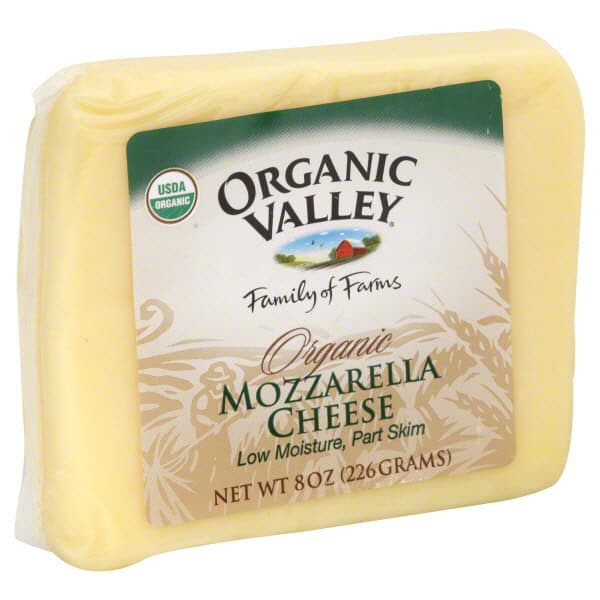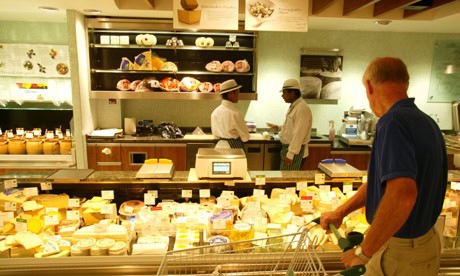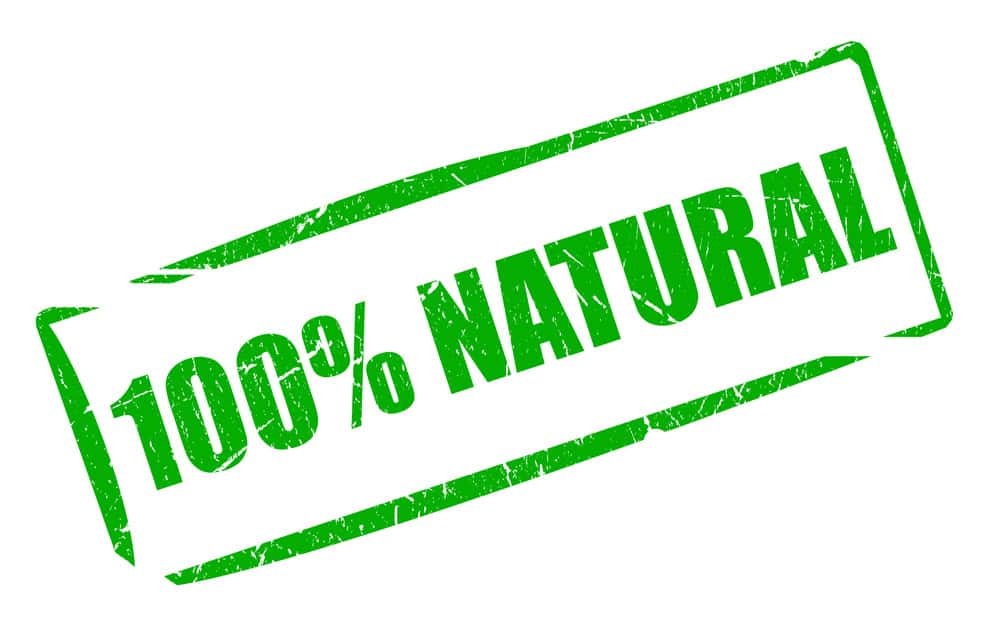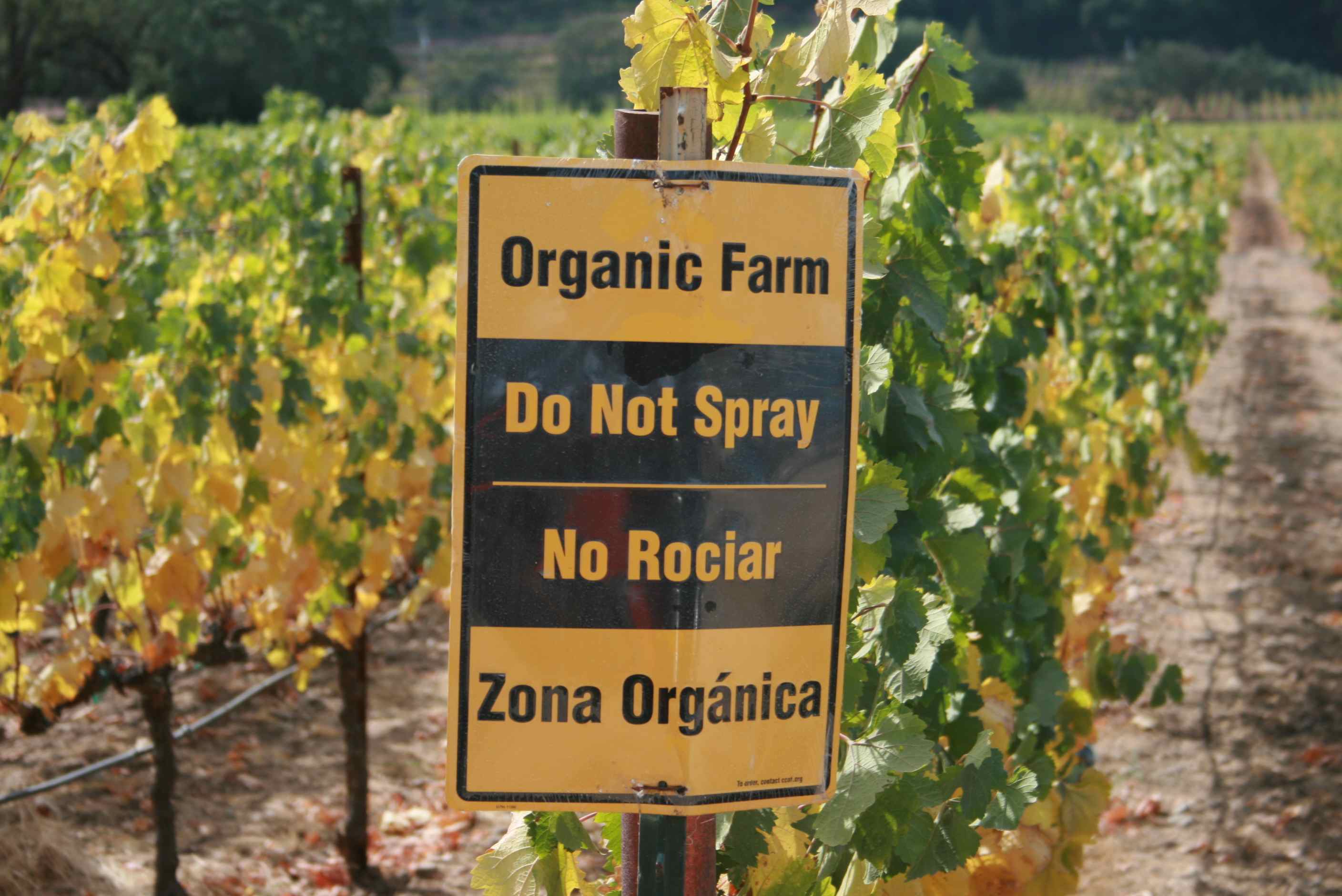Category: Skinny Alternatives
All About Organic Cheeses- Are They Better For You?
If you are a cheese lover, it is already hard enough to choose between your favorite Mozzarella, Stilton or Cheddar. Not only that but in recent years, creameries have created another delicious choice for us: Organic.

Image Source: gianteagle.com/93966253702.aspx
Organic cheese is very much like many other organic agricultural products on the market, organic cheese is produced without the use of antibiotics, growth hormones, or dangerous pesticides. The milk used to produce the organic cheese comes from all organic farms where cows only eat organically grown grasses. The cheese is also free from artificial coloring or flavorings, and a lot of the time, enzyme rennet, which is used to curdle the milk, is not made from animals or genetically engineered. In place of them are naturally occurring enzymes, making organic cheese not only delicious but safe for vegetarians too.
Why You Should Buy Organic

Image Source: pinterest.com/pin/548946642051275268/
It is always the case that when you buy food, it is important to find something that tastes good, and is generally good for you. The good thing about organic cheese is that they are often superior in taste and quality and have received many rewards from cheese connoisseurs and professional critics.
While organic cheese is great for your taste buds, the benefits of buying it stretch farther than just your body. Buying it positively affects everything from your personal health to farm animal welfare, to even the earth’s endangered environment. To put it all into perspective:
Organic Cheese Affects On Your Health

Organic cheese contains all the goodness from regular cheese, including the high levels of protein and calcium. However, research has proven that due to cows having a natural pasture-fed diet, cheese made from organic milk is much higher in nutritional value.
– Research has shown that there are more Antioxidants in organic cheese, with it being 2-3 times higher in antioxidants such as lutein. It is also proven that organic milk is up to 50% higher in vitamin E and 75% higher in beta-carotene. They all fight damaging free radicals and can perhaps aid the prevention of cancer and heart disease.
– Studies have shown that there are more Omega-3s, containing up to 71% more than non-organic milk. Omega-3s are vital for maintaining a healthy heart, strong bones and teeth and flexible joints.
– Organic cheeses also lower the exposure to the toxins and pesticides that often come from factory farming practices. This is very important for children in particular because their rapidly growing nervous systems are more sensitive to the effects of these harmful compounds.
The Welfare Of Animals

Image Source: renewingallthings.com
Another great thing about organic farming is that organic dairy farmers are also committed to the humane treatment of farm animals. Cows are not pumped with protein or antibiotics to force them into producing more than their natural capacities. They are kept in good health, fed an organic diet and have access to fresh air, natural light, and open pasture as much as possible.
Also, another important part of organic farming is that if the cows become sick, they are treated holistically with homeopathic medicines whereas, at non-organic farms, cows are routinely given antibiotics to prevent infection, even when they are healthy. While antibiotics are useful for fighting disease, they become less effective when used excessively. This has an onset effect for humans as we are being exposed to the antibiotics and they may lose effectiveness in treating humans too.
The Effects On The Environment

Image Source: therealwinerepublic.com/
You wouldn’t think that organic farming would have an effect on the environment, but it actually does. Organic farmers are not permitted to use chemicals that pollute the air, water or food. Instead, organic farmers use non-toxic pest control methods and sustainable farming techniques like crop rotation and composting. These methods ensure rich, healthy soils while conserving water and fossil fuels. They also are encouraging to wildlife, which has drastically declined over the last 50 years.
How To Know If It’s Organic

Image Source: ota.com/organic-101/organic-standards
Labeling is definitely important when cheese buyers are seeking higher nutritional value, toxin free and humane farming practices. In the U.S. it is the law to have certified organic labeling. There are numerous standards which are enforced by organic certification authorities. If you are in doubt, it is best to check your cheese packaging for organic accreditation. When cheese is labeled organic, it must contain at least 95% organically produced raw or processed agricultural products. Labels will usually contain the standard USDA certification.
The Best Low-Calorie Wine
Image Source: mohawkvalleywinery.com
Summer is closing in fast and we all want that ‘bikini body’… but we also love to drink wine. Usually losing weight involves completely ridding our lives of all alcoholic drinks. However, we all know that we can’t resist a delicious glass of wine after a long day or even just on a glorious sunny day. So, rather than trying to go cold turkey, why not try this perfect resolution of easing into summer with some low-calorie, weight-loss friendly wines?
Slim wine wines or skinny wines are definitely not the answer, you’d actually be surprised to know that there are plenty of ‘hidden’ low-calorie bottles that can be found on the shelf of your local wine shop. The two main things that contribute to wine being calorific are alcohol and sugar. With this, dry wines are the least calorific than those wines with residual sugar, and wines with lower alcohol content are also lower in calories which are why wine can be more diet-friendly than liquor-based drinks. The serving size may be larger, but wine is lower in alcohol than liquor, and most cocktails require mixers that add even more calories as well. An easy guideline would be to seek out bottles which are completely dry and contain and ABV of 12 percent or less. It doesn’t matter what type of mine, no option will be calorie free, the key is moderation.
For those sparkling wine lovers, you’ll be surprised to know that sparkling wine, in general, is the lowest calorie option for them all. Sparkling wine is usually lower in alcohol as they tend to be produced in cooler climates, and cooler climates generally mean lower-alcohol wines. Also, a lot of bottles have a sweetness level ‘key’ on the label. Lower dosage equals lower added sugar, so anything with the label of “brut nature,” “brut zero,” or “extra brut” is sure to be bone dry.
White wine lovers also don’t need to worry as white wine is the second lowest calorie wine available. They are definitely lower in alcohol than reds, and many of them fall under 12 percent ABV or less. Residual sugar, however, is something to watch for in white wines as many single-digit ABV bottles have a lot more residual sugar, which isn’t the greatest because sweet wines have around 30 more calories per serving than their dry counterparts.
The question you may be thinking right now is: does this mean that red wine drinkers need to drink something else altogether? Absolutely not. Although red wines tend to be fuller-bodied and have a higher ABV than white and sparkling wines, there are still healthy red wine options available. The best thing to do is look for bottles that are less than 13 percent ABV, the cooler climates offer the best options for this. The good thing about choosing red is that you don’t have to worry about sugar, as nearly all red wines are dry. Though, heavy red lovers may have to forgo their Merlots.. just while working on that summer body. A small sacrifice is much better than no wine at all though, that is for sure.
Calorie-Friendly Ideas
White Wines
Dry Riesling, Muscadet, and Picpoul.
Sparkling Wines
Cava, Champagne, and Crémant.
Red Wines
Schiava, Gamay, Barbera, and Pinot Noir.
8 Foods That Will Give You A Healthier Mind
It is easy to forget, with our busy lifestyles, the basic guidelines for healthy eating. A lot of the time, we are so busy that we don’t even manage to consume the 3 important square meals a day. However, there are certain foods that are considered to be ‘brain foods’ and can really help with the overall function of your brain and are really easy to fit in with even the busiest of lifestyles.
Image Source: simplesmartscience.com/wp-content/uploads/2015/08/brain-food.jpg
Here is a list of 8 super foods that are proven to help with memory, focus and keeping you feeling more energized throughout the day- which we can all admit, would be very helpful!
1. Nuts
Being high in fiber, protein, unsaturated fats and a huge array of minerals and vitamins, eating a handful of nuts each day, may well keep the doctor away! Each type of nut offers a huge variety of nutrients. For example, Walnuts contain a high amount of alpha-linolenic acids, which is essential for our brain in keeping it healthy and active, as it is one of the three Omega-3 fatty acids that we need. Another example would be Cashew nuts. Cashews are high in iron, zinc, and magnesium, which is linked to helping the improvement of memory loss and memory related diseases.
2. Avocado
Avocados are a heavily packed food, containing an incredible amount of nutrients such as vitamins A, C, D, E, K and all B vitamins, along with potassium and fiber. And if that isn’t enough, Avocados also are rich in polyunsaturated and monounsaturated fats, also known as Omega-3 fatty acids. With Avocados containing so much goodness, they help with a wide range of things such as keeping your heart and brain healthy and reducing your risk of developing Alzheimer’s disease.
3. Beets
Beets have been proven to increase blood flow to the brain. Not only that, they are also high in minerals and vitamins such as Vitamin C, folate, fiber, manganese, and potassium. They convert nitric oxide in your body which can improve your overall mental performance and brain function greatly because it helps you to relax and dilates the blood vessels in your brain, ultimately lowering your blood pressure.
4. Salmon
It may be known to you that eating fish that is high in fatty acids is one of the best sources of protein and other nutrients which are essential for your brain and body. It is even more important that we eat foods like salmon because our body simply does not make the essential fatty acids we need. Salmon, along with trout, mackerel and sardines also contain high levels of EFAs and DHAs, which DHAs improve memory loss and can reduce the risk of memory related diseases.
5. Dark Chocolate
For all you dark chocolate lovers out there, it is proven that dark chocolate has the most brain health benefits out of all chocolates. Chocolate is used widely as a comfort food, but realistically chocolate does actually make you feel a lot happier because of its high levels of tryptophan, which is a neurotransmitter of feeling happy. The flavonoids in dark chocolate improve blood flow to the brain which in turn, increases your reaction time, your attention span, your overall memory and your problem-solving skills. That isn’t all, dark chocolate also releases endorphins into our brain, which reduces stress levels and pain.
6. Broccoli
Since we were children, it is always hammered into us that eating greens is important. But eating greens really has never been more important than for your overall brain health. Broccoli helps strengthen your cognitive brain functions and improve your memory because it is rich in Vitamin K and choline. It also contains a high amount of folic acid, which helps fight off depression and keeps you feeling happy. Not only that, the folic acid aids in preventing Alzheimer’s disease. Additionally, broccoli benefits our most basic functions such as reasoning, thinking, remembering, imagining and learning, because of its high levels of lignans.
7. Whole Grains
There are a huge variety of whole grains such as pasta, whole grain bread, brown rice, and oats. Whole grains are low glycemic foods which will keep your blood sugar stable for a lot longer than when you eat refined or white grains. This is why whole grains are considered to contain magical energy for the brain. Whole grains also alter your glucose levels slightly and will slowly supply glucose to the brain and body over time, helping you concentrate for longer and stay focused more, throughout the day.
8. Blueberries
You might be relieved to know that many studies show that eating blueberries can help slow the aging process and age-related diseases! According to another study, from Tufts University, blueberries, if eaten regularly can also help with short-term memory loss. These magic berries can also help your motor functions and improve your learning abilities.
Can Cheese be the Answer to a Long and Healthy Life?
When you think of foods that promote and maintain healthy living, you think of salads, fruits, vegetables and grains among other foods. Unbeknownst to many, though, are the enormous health benefits of cheese. Contrary to the common view that cheese contains fat and less known for its health benefits, cheese can indeed “right the ship” in terms of bodily health. Cheese contains a number of nutrients, proteins and essential vitamins and minerals. Among these are Vitamin A, riboflavin, calcium, phosphorus, zinc and Vitamin B12, among others.

Photo Credit: HealthLine/Adamn Wenger
The benefits of cheese are numerous. Below, you’ll find the biggest, overall benefits in promoting health.
Dental Hygiene
When it comes to dental hygiene, cheese serves as the proverbial “one-two punch” in fighting germs. Given that is contains rich amounts of calcium which is vital for good dental hygiene by building strong teeth, cheese is an ideal candidate for thwarting cavities and plaque build-up. Also known for its low levels of lactose, cheese just adds to its repertoire of promoting those healthy, pearly whites as too much lactose content can promote cavities and plaque.
Cancer Prevention
When cheese comes to mind, one benefit of cheese that likely does not come close to striking the mind is the benefit it can have in cancer prevention. In fact, cheese can prevent the growth of cancer. A few byproducts of cheese-making include conjugated Linoleic Acid and Sphingolipids which are instrumental in cancer prevention efforts. A critical vitamin found in cheese is Vitamin B which can protect the body and its immune system when fending off potential diseases.
Maintaining Body Balance
Some cheeses contain low levels of fat content which can help regulate body fat in an effort to maintain good, healthy body balance. These cheese also assist in the development of muscle mass and increase bone density through fats, calcium, proteins and vitamins and minerals.
Bone Strength
As noted before, cheese contains a good number of calcium and Vitamin B which is essential for the development of healthy bones among elderly folks, children and pregnant women. As cheese is consumed, the Vitamin B in the cheese absorbs and distributes the calcium within the body.
A Good Heart
It is fairly common knowledge that high intakes of sodium and cholesterol can lead to poor heart health and high blood pressure. Cheese that contains low amounts of sodium can reduce the threat for heart disease, similar to the means in which Vitamin B reduces high blood pressure levels.
Pregnancy Benefits
Cheese can promote a healthy pregnancy through its calcium content which can aid in the stimulation of contractions during labor. The good amounts of calcium found in cheese can also be beneficial for women when breastfeeding as this helps in proper breast milk production.
Healthy Skin
Vitamin B, found in cheese, is known to be a premier contributor to healthy skin as it is beneficial in maintaining silky, smooth and glowing skin.
Migraine Prevention
Again, the calcium content in cheese can be beneficial in preventing or relieving migraines.
Counting Sheep
Found in cheese is an amino acid called Tryptophan which can stimulate one’s sleeping patterns by lowering stress and aiding in inducing better sleeping patterns.
Great Hair
Are you a fan of cottage cheese? Well if you are not, you might want to reconsider, especially if you love your hair. Cottage cheese with low-fat content contains a lot of protein and a tremendous amount of calcium which promotes and maintains healthy hair.





